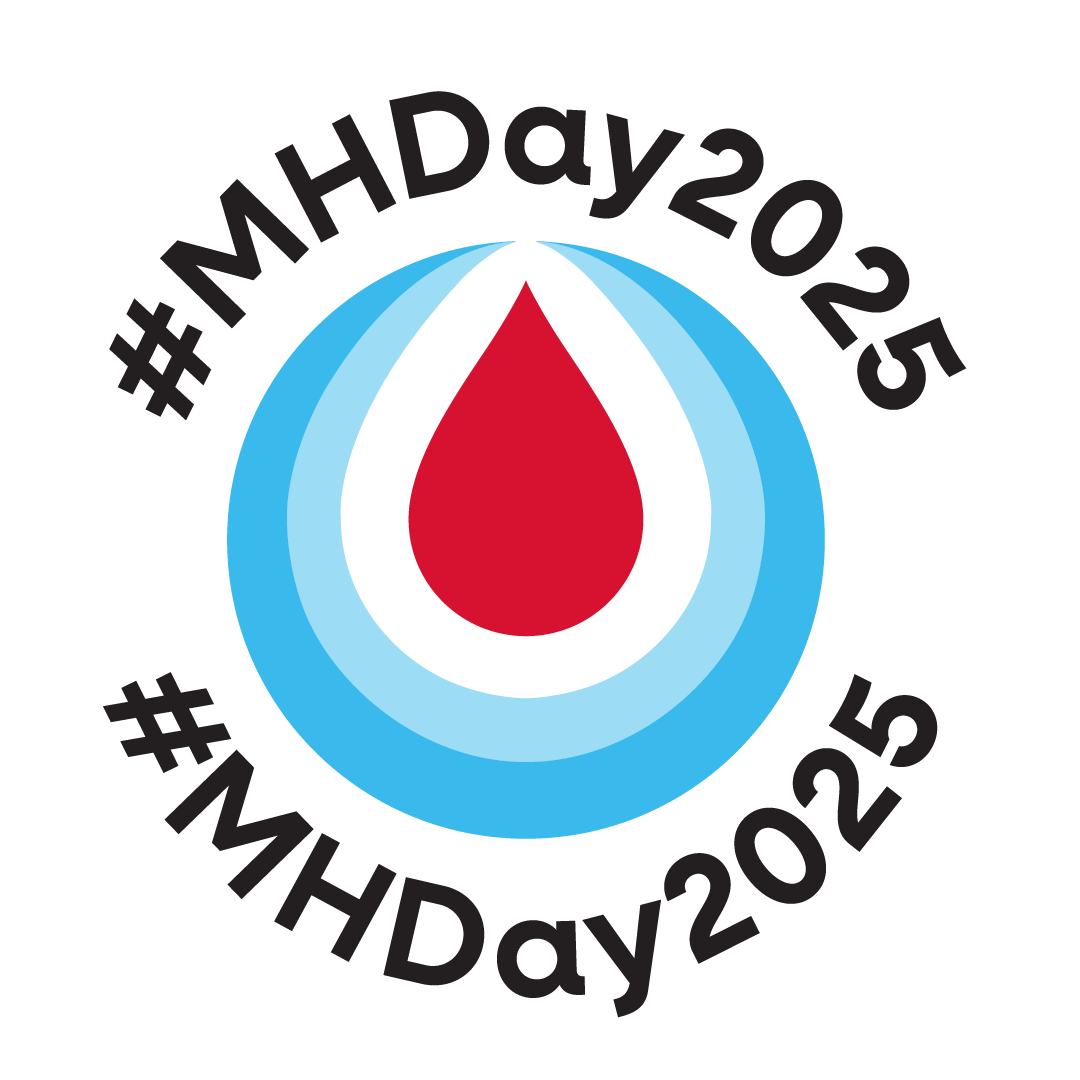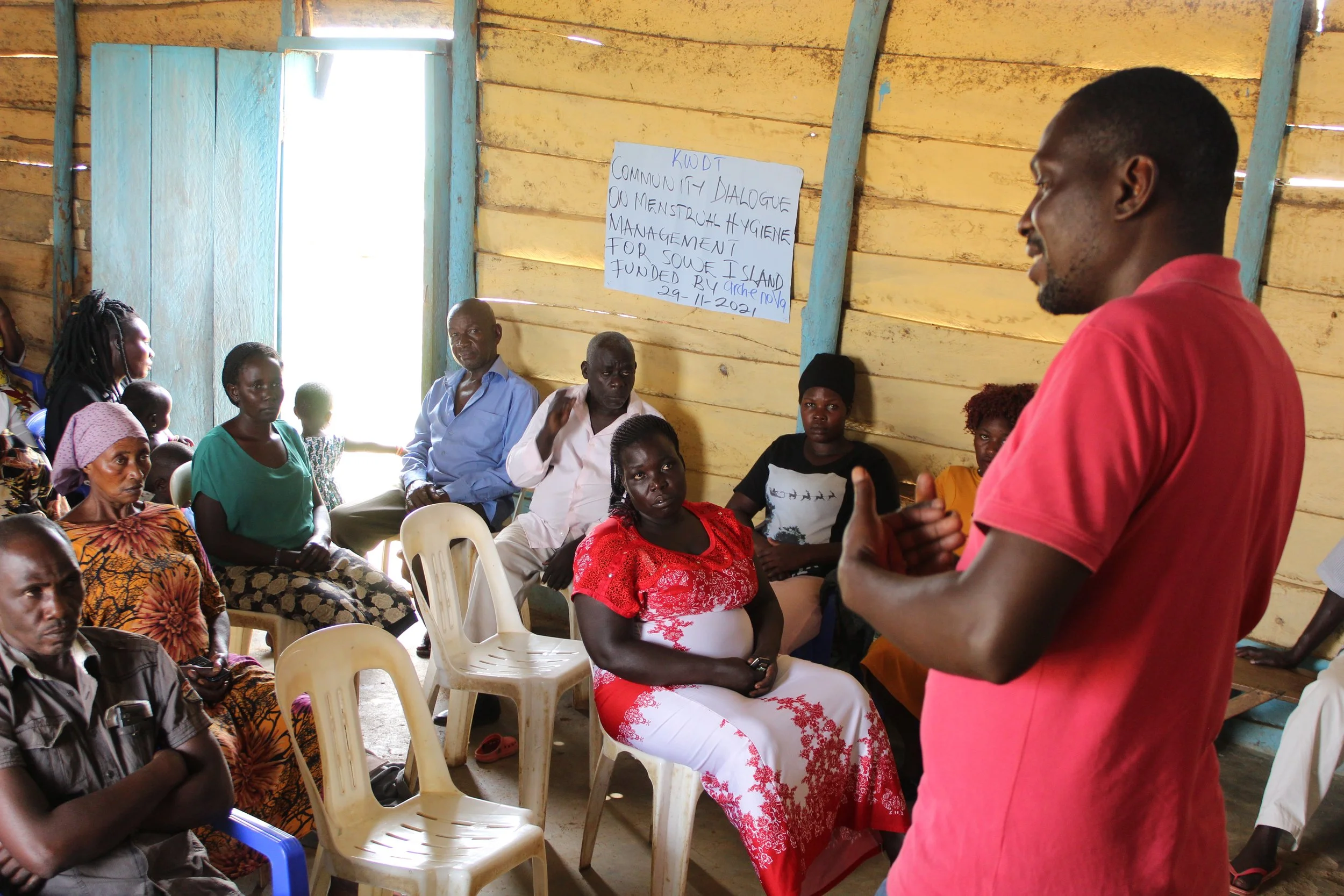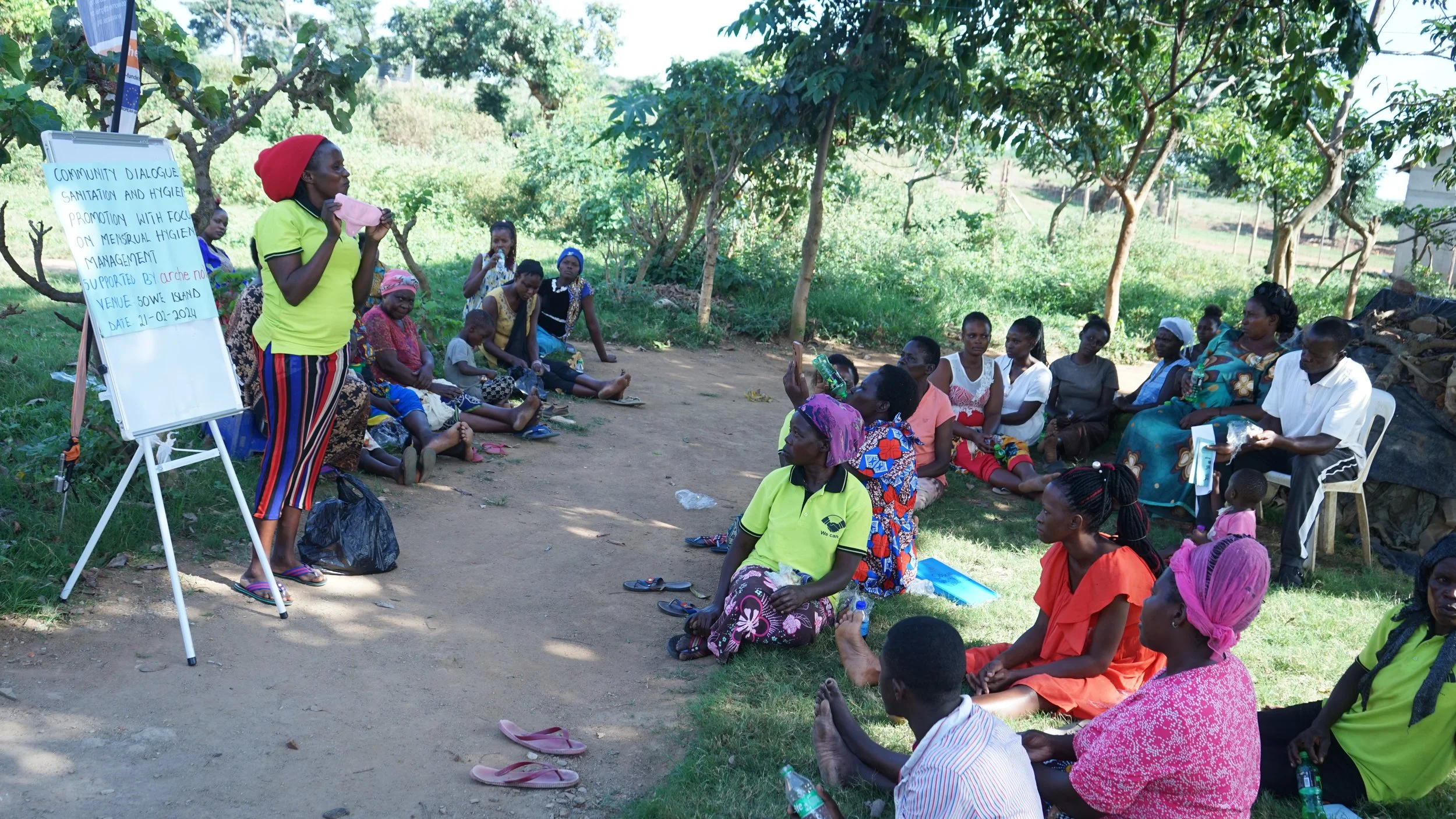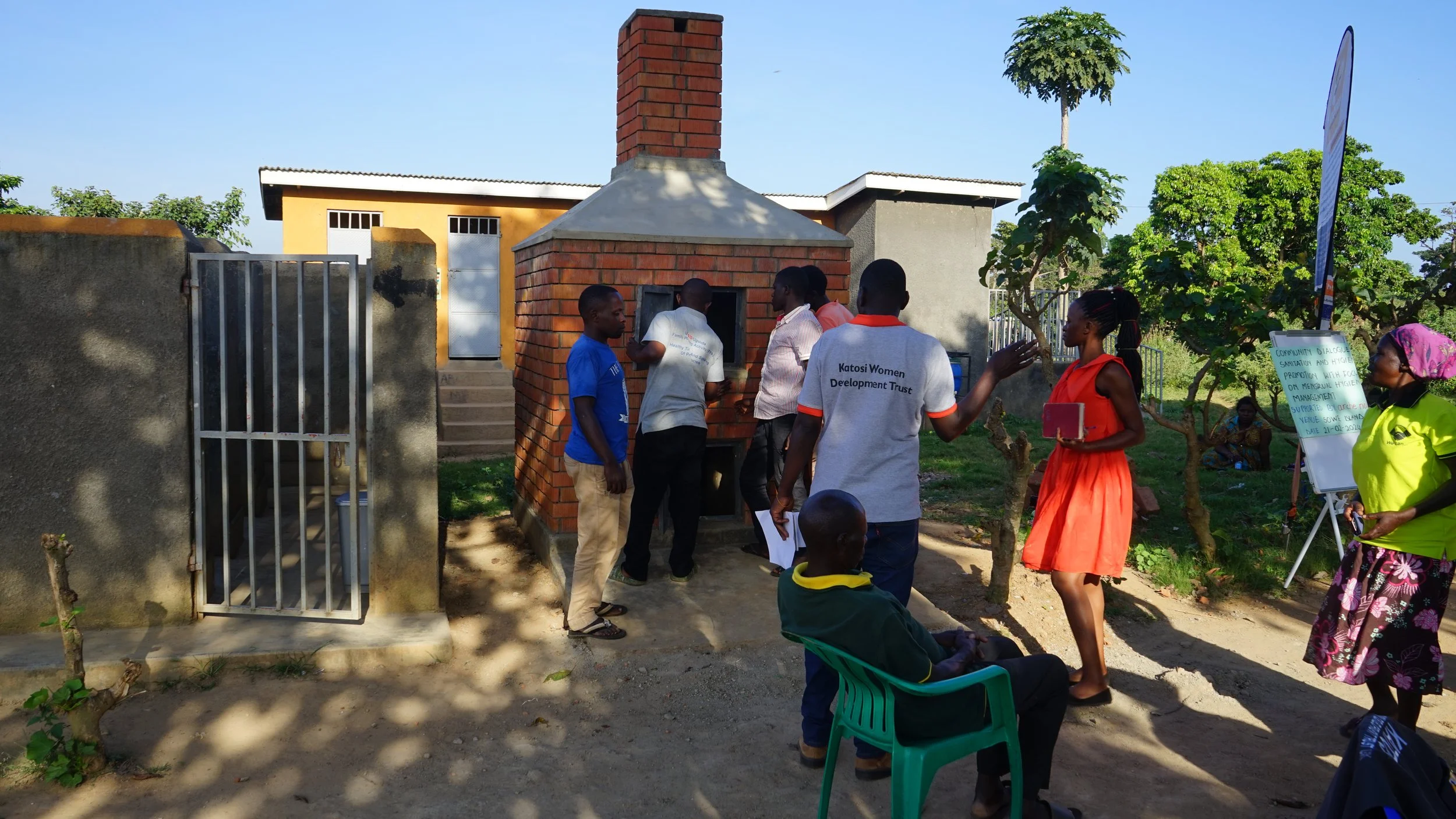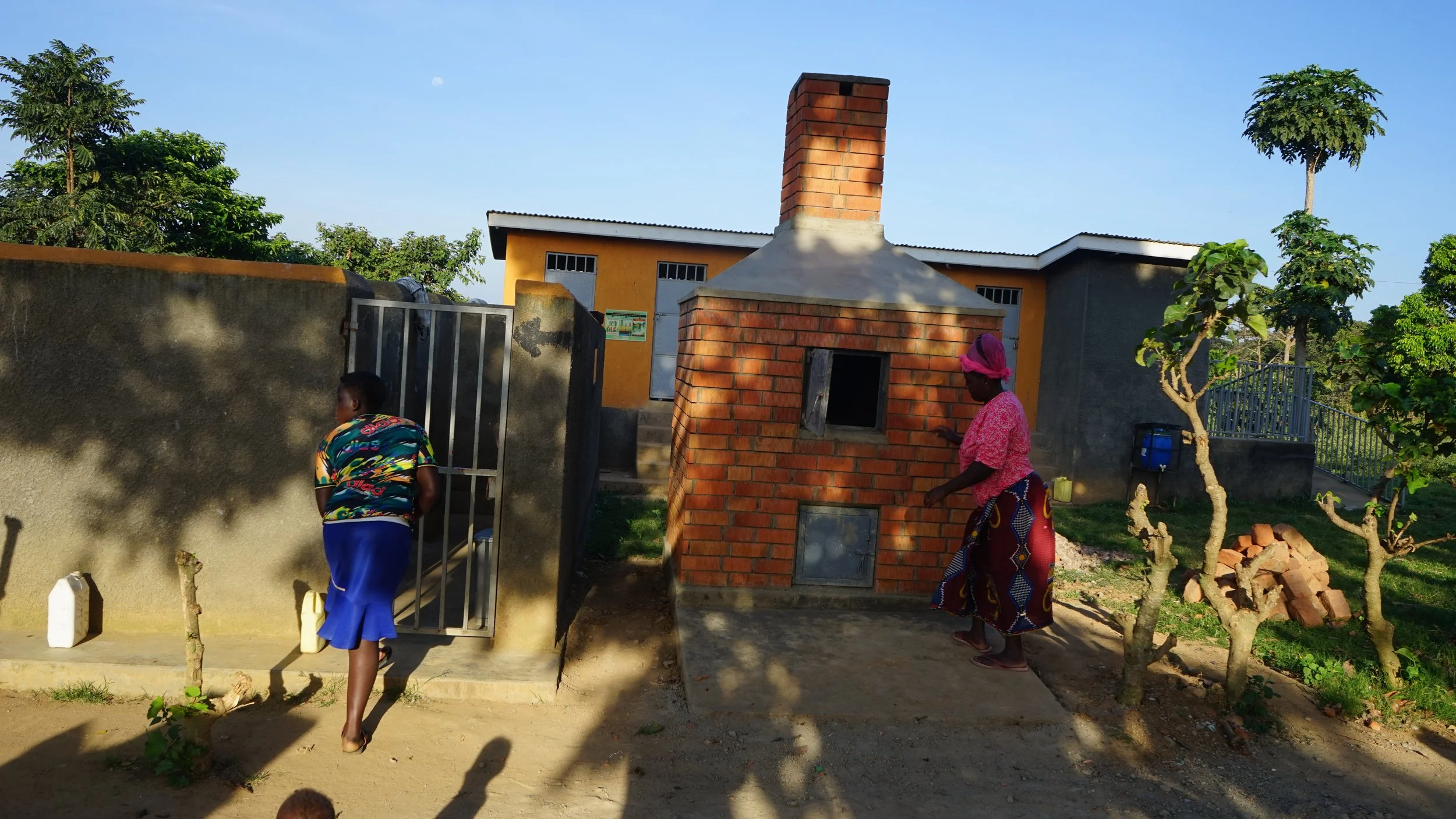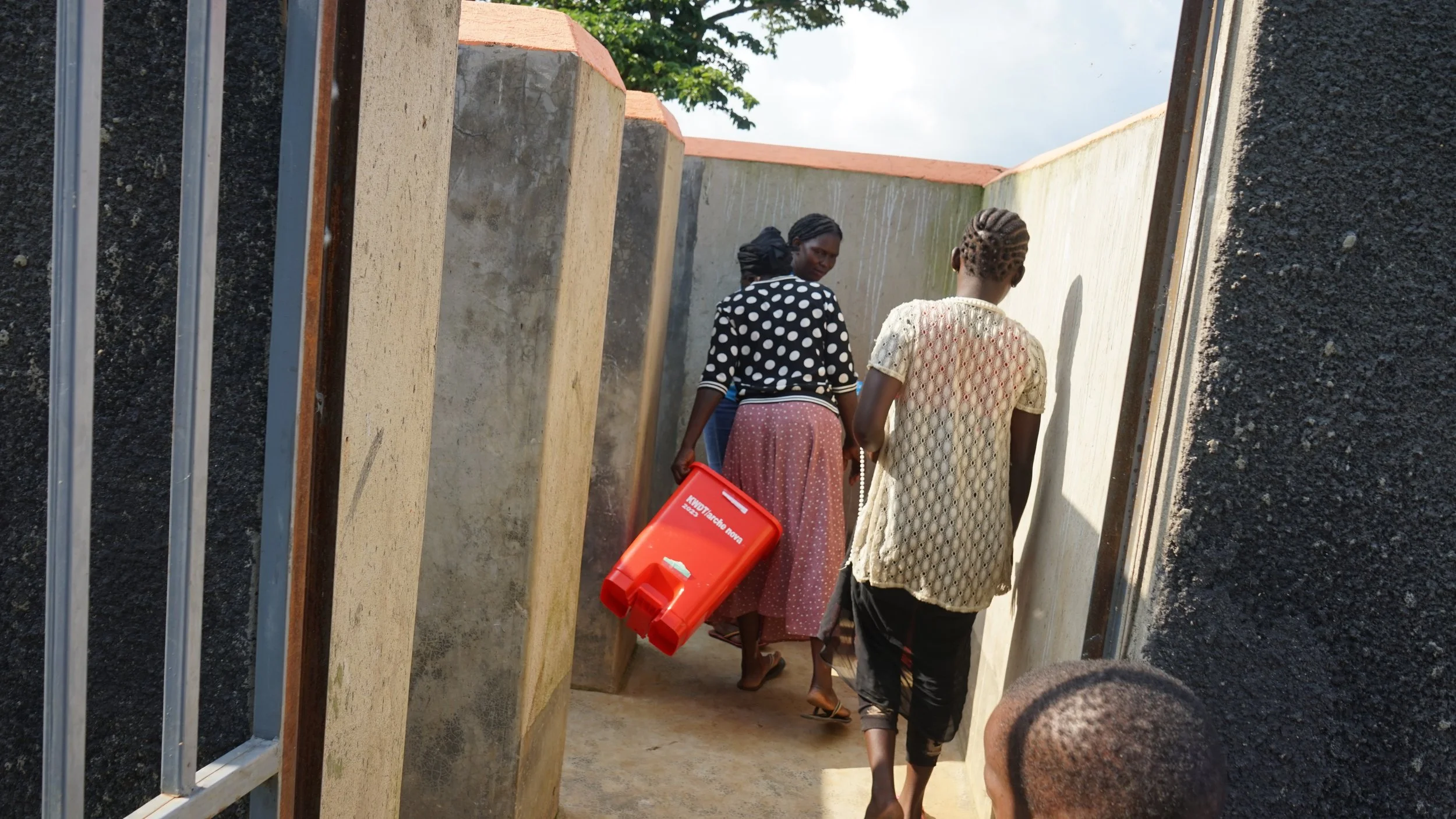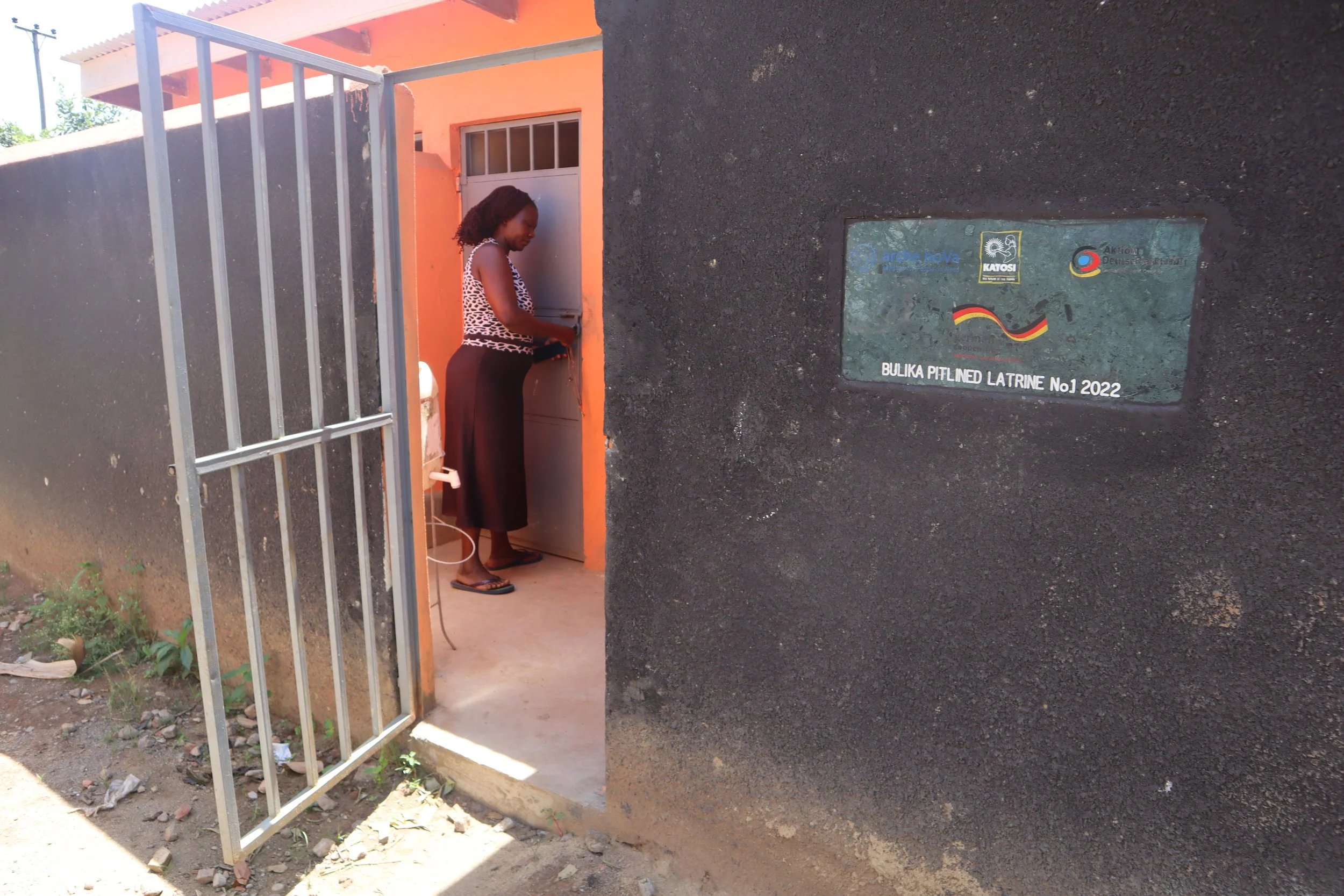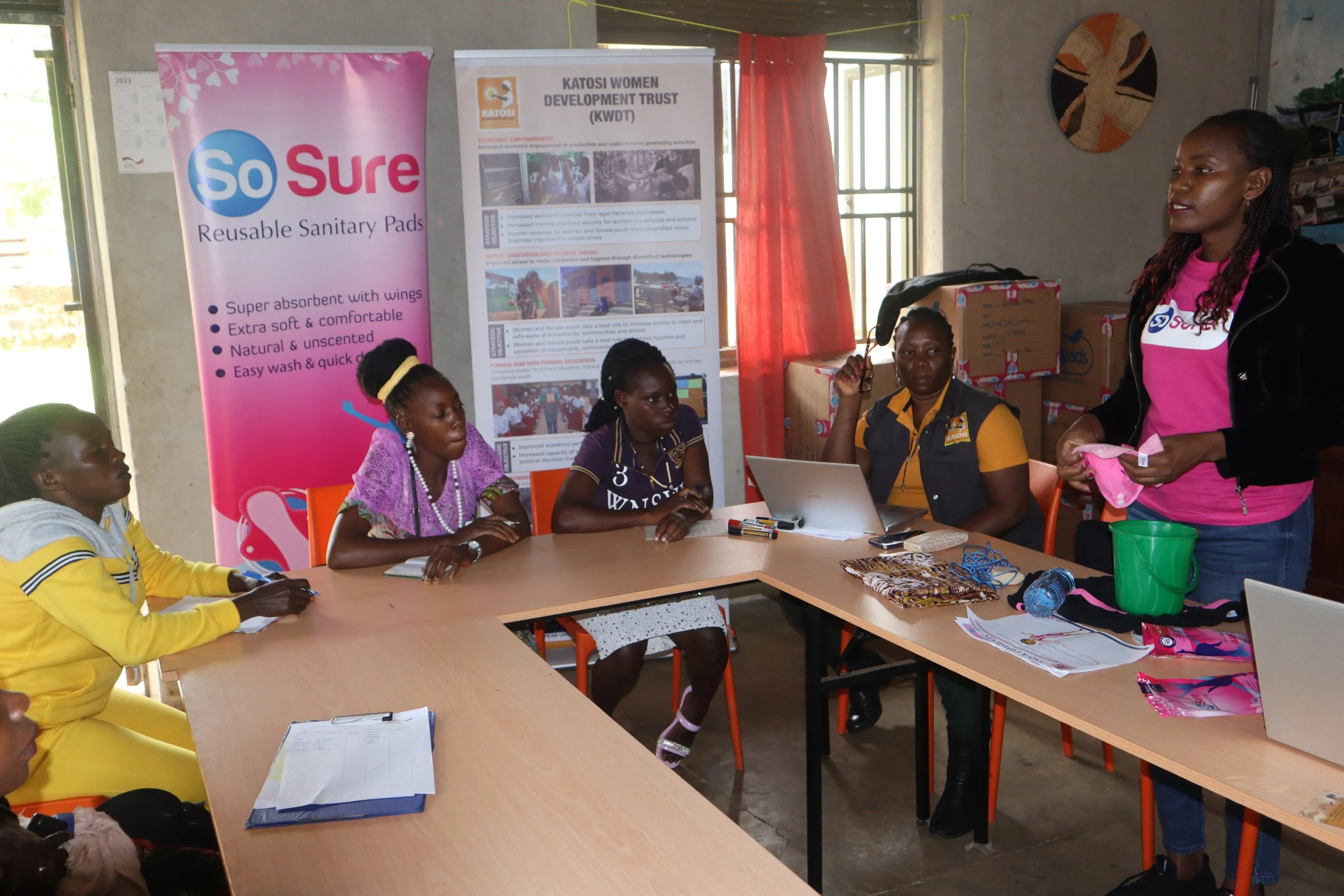KWDT Champions a #PeriodFriendlyWorld Through Community Driven Menstrual Health Solutions
Every year on May 28th, the world comes together to raise awareness around a subject that has long been stigmatized, menstruation. This year’s Menstrual Hygiene Day theme is a global call to action for dignity, access, and equality. At KWDT, this call echoes across the shores of Lake Victoria, where our commitment to menstrual equity is transforming communities from the inside out.
Over the past years, KWDT has facilitated a series of dialogues in different communities for example Sowe and Mbeya Island, Mukono District, engaging women, men, and youth in honest, urgent conversations about menstrual hygiene management (MHM). These community dialogues, part of the Resilience Building of Fishing Communities project, are sparking not just conversations but real change.
In these communities, menstruation has long been surrounded by stigma, misinformation, and neglect. Women were forced to hide their experiences, while girls missed school due to lack of pads or fear of being shamed.
But something is changing.
“Training with the men has given us confidence and an opportunity to freely manage menstruation.” Remarked a female participant from Sowe. “For the first time, men in these fishing communities are stepping into the conversation and the solution. From pledging to purchase sanitary products for their partners and daughters, to helping dig disposal pits for used pads, their involvement is dismantling the idea that periods are “a women’s issue.”
Tackling Disposal Challenges Head-On
Poor disposal of sanitary products has posed significant health and environmental risks. In Sowe, used pads were being thrown in the lake and bushes. In Mbeya, rooftops and compounds became dumping grounds. But with support from archenova, incinerators have been constructed for safe disposal of non-biodegradable materials, especially sanitary pads. Additionally, menstrual buckets have been installed in all constructed latrines for better MHM. Women have also formed hygiene committees to oversee pad disposal and latrine cleanliness. Participants in both islands were also encouraged to explore and adopt the use of reusable sanitary pads, including AFRI Pads, which were praised for being cost-effective, leak-proof, and soft. These changes, while local, are powerful examples of how sustainable MHM practices can be integrated into WASH systems.
Engaging Youth, Empowering Women
In both dialogues, girls as young as 15 were identified as needing urgent support not just access to pads, but also education and protection. In Sowe, a female leader was appointed to help curb open defecation among women, a challenge linked to fears of assault at night and inadequate sanitation facilities. To support menstrual hygiene in schools and among adolescents, communities have requested increased distribution of sanitary pads and training on making reusable pads and liquid soap, which can support hygiene as well as income generation.
At the end of the training, it was clear to everybody why menstrual hygiene is related to WASH and its management is a responsibility for all.
Towards a Period-Friendly Uganda
KWDT’s vision for a #PeriodFriendlyWorld is grounded in local realities and powered by community voices. From men pledging support to girls gaining confidence, the shift is underway. But the journey isn’t over.
We call on:
Government and development partners to fund grassroots menstrual equity efforts.
Schools and community leaders to integrate MHM education and infrastructure.
The private sector to invest in affordable and sustainable menstrual products.
Everyone to break the silence around menstruation.
“If removing or selling my pigs will change the community, I will do so for the good of Sowe.” – Community leader, Sowe
This Menstrual Hygiene Day, let’s ensure that no girl misses school, no woman feels ashamed, and no community is left behind because menstrual health is a human right.



